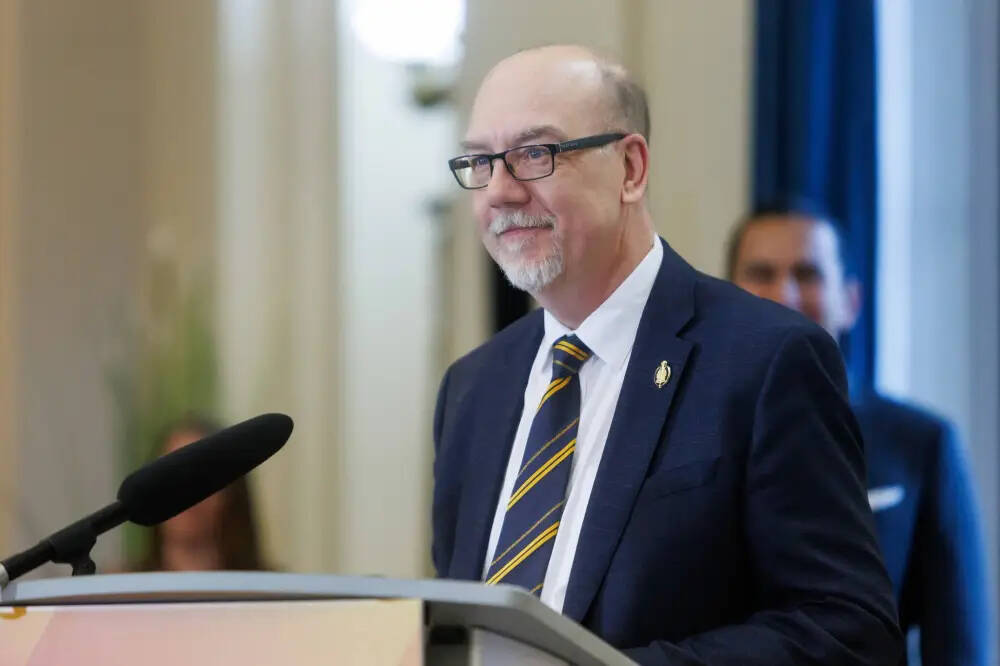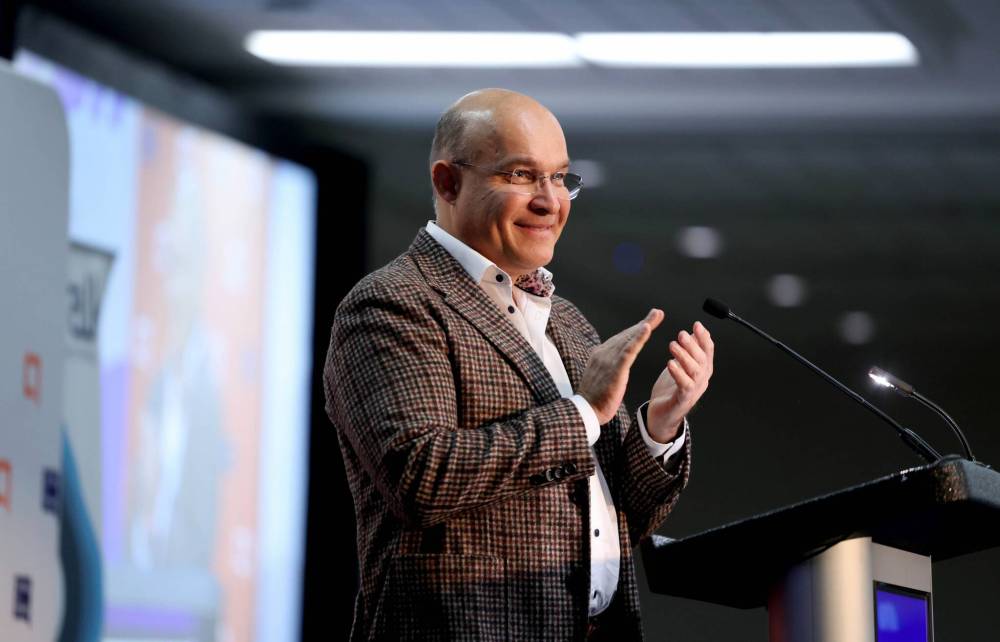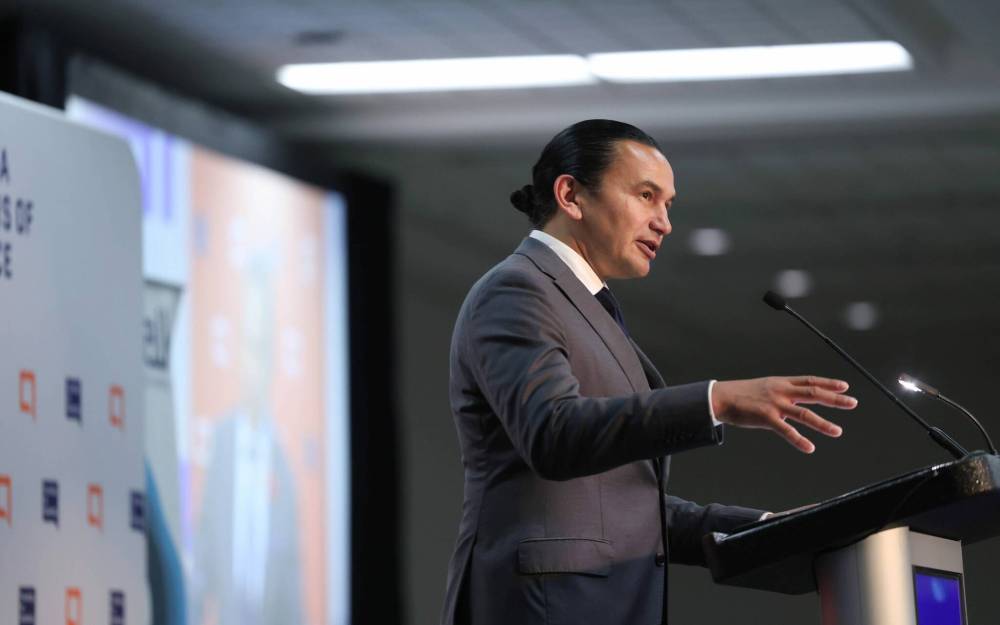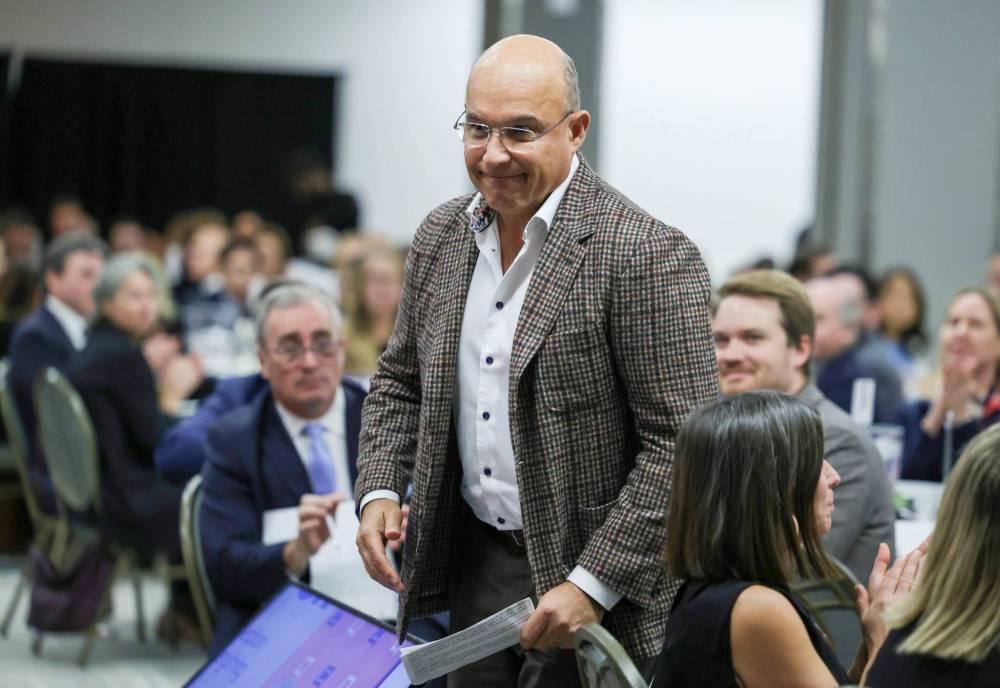Province releases inaugural innovation report
Advertisement
Read this article for free:
or
Already have an account? Log in here »
To continue reading, please subscribe:
Monthly Digital Subscription
$0 for the first 4 weeks*
- Enjoy unlimited reading on winnipegfreepress.com
- Read the E-Edition, our digital replica newspaper
- Access News Break, our award-winning app
- Play interactive puzzles
*No charge for 4 weeks then price increases to the regular rate of $19.00 plus GST every four weeks. Offer available to new and qualified returning subscribers only. Cancel any time.
Monthly Digital Subscription
$4.75/week*
- Enjoy unlimited reading on winnipegfreepress.com
- Read the E-Edition, our digital replica newspaper
- Access News Break, our award-winning app
- Play interactive puzzles
*Billed as $19 plus GST every four weeks. Cancel any time.
To continue reading, please subscribe:
Add Free Press access to your Brandon Sun subscription for only an additional
$1 for the first 4 weeks*
*Your next subscription payment will increase by $1.00 and you will be charged $16.99 plus GST for four weeks. After four weeks, your payment will increase to $23.99 plus GST every four weeks.
Read unlimited articles for free today:
or
Already have an account? Log in here »
Promises to keep data in Manitoba and bolster the economy through innovation highlight the province’s first innovation and prosperity report.
“AI, tech, it’s gonna be in your industry,” Premier Wab Kinew said Friday after the report’s release. “We have to get in the game.”
Proponents of the 39-page document expressed hope for Manitoba’s future; critics deemed the strategy lacking.
A majority of Manitoba’s data storage and cloud computing infrastructure is run by United States firms such as Microsoft. The report calls on the province to build its own infrastructure with federal and provincial funds.
Manitobans will have local servers and data centres in the future, Kinew said. Already, the province is home to eight such centres.
A variety of computing technologies — air gapping, on-site data storage and cloud services — are being considered. New projects must ensure data stays in Canada, Kinew said.
He provided few details but mentioned Merlin, the IT service used for elementary and high school students: the government might order Nvidia graphics processing units for the service as a tech-forward step.
“We need to start thinking about your health information, your kids’ educational information,” Kinew said, adding there’s “enough power for us in Manitoba to get in the game.”
Large data centres have made headlines for requiring significant energy. A 2024 Goldman Sachs article states the average ChatGPT query needs almost 10 times the electricity of a Google search.
Meantime, Manitoba Hydro has posted financial losses for the past two years because of drought.
More power could come online through wind generation and future projects, Kinew hinted, declining to give specifics. Manitoba Hydro’s long-term plan shows promise, he said.
The report was delivered nearly a year after the province unrolled its innovation and new technology department. In May, Manitoba announced a nine-person task force to lead the creation of the innovation strategy.
Innovation Minister Mike Moroz co-chaired the group alongside Jim Balsillie, co-founder of the Council of Canadian Innovators and the former co-chief executive of BlackBerry.
The task force, which included local business owners and business-facing organizations, liaised with more than 150 businesses and First Nations, Balsillie said.

Innovation and New Technology Minister Mike Moroz (Mike Deal / Free Press files)
It emerged with six pillars for its report: intellectual property generation and ownership; data and AI ownership and control; infrastructure; skills and human capital; federal-provincial alignment; and sector considerations (which breaks down “opportunities” and “barriers” by sector).
The task force urged the government to develop a provincial intellectual property strategy that helps with commercialization. Canada lacks a plan for Canadians to own their research, Balsillie said.
“If you don’t own it, you can’t charge revenue for it,” he said.
The province could create a concierge service to help businesses overcome hurdles on their path to innovation, Balsillie continued.
The report doesn’t include timelines for specific projects. It lacks details and substance, said Josh Guenter, the Progressive Conservatives’ innovation critic.

“It’s an aspirational wish list,” Guenter continued.
Kelly Fournel, Tech Manitoba’s chief executive, noted that climate change wasn’t mentioned in the report. It also doesn’t address the “elephant in the room” that Manitoba businesses, historically, haven’t kept pace with other jurisdictions in technology adoption, Fournel said.
“I wonder, what is it about this strategy that will help Manitoba overcome its inertia?” she questioned.
Moroz said a data centre strategy is being created and new announcements related to the overall report will unroll shortly. He’s been meeting with the province’s education and advanced education ministers to “fine tune” initiatives.
The task force recommended Manitoba align its workforce development — such as post-secondary schooling — with job market needs.

The new report is a chance for the province to “put their money where their mouth is” and employ Manitobans for work that’s often contracted out, such as software development, said the Manitoba Government and General Employees’ Union’s president.
“We’re really hoping government will be a leader in this,” Kyle Ross said.
The report didn’t have a cost and Balsillie didn’t collect a salary, said government spokesman Ryan Stelter.
The Winnipeg Airports Authority is among the organizations to have its own innovation portfolio, said Dave Zubricki, the director of commercial development.
Manitoba’s innovation report may help locals embrace innovation, Zubricki said: “What this does is, it encourages people that (others) are doing this and that they need to do it.”

In September, the government released its economic development strategy. Artificial intelligence and agriculture technologies were listed as “emerging sectors” in the strategy.
gabrielle.piche@winnipegfreepress.com

Gabby is a big fan of people, writing and learning. She graduated from Red River College’s Creative Communications program in the spring of 2020.
Our newsroom depends on a growing audience of readers to power our journalism. If you are not a paid reader, please consider becoming a subscriber.
Our newsroom depends on its audience of readers to power our journalism. Thank you for your support.
History
Updated on Friday, October 31, 2025 12:55 PM CDT: Adds file photo
Updated on Saturday, November 1, 2025 8:31 AM CDT: Updates with final version


